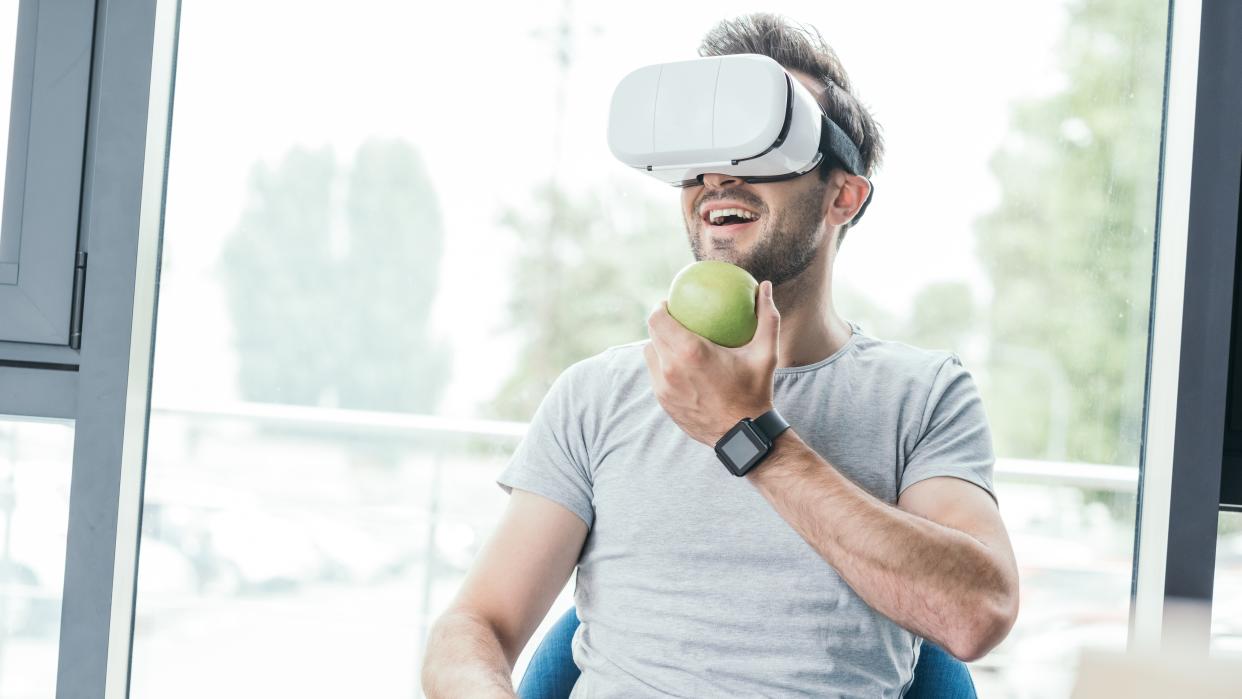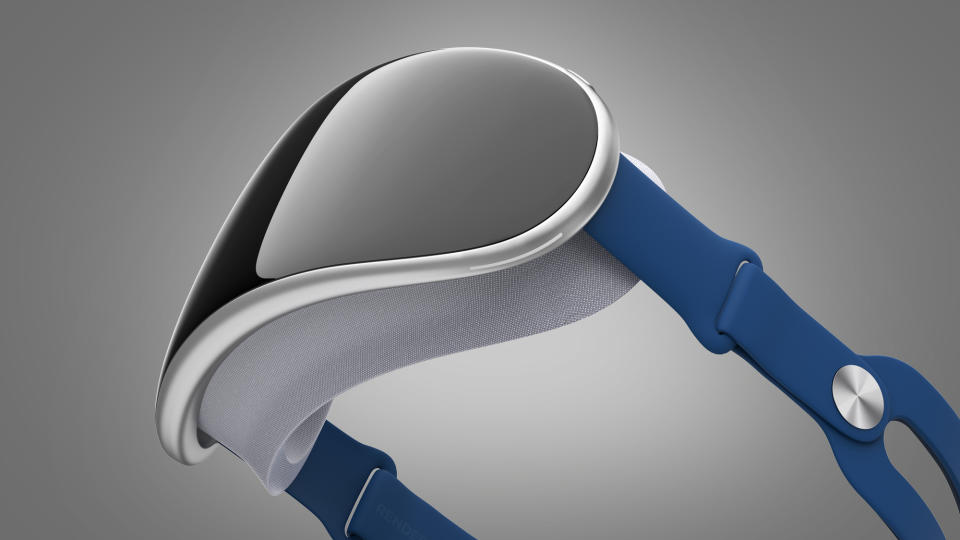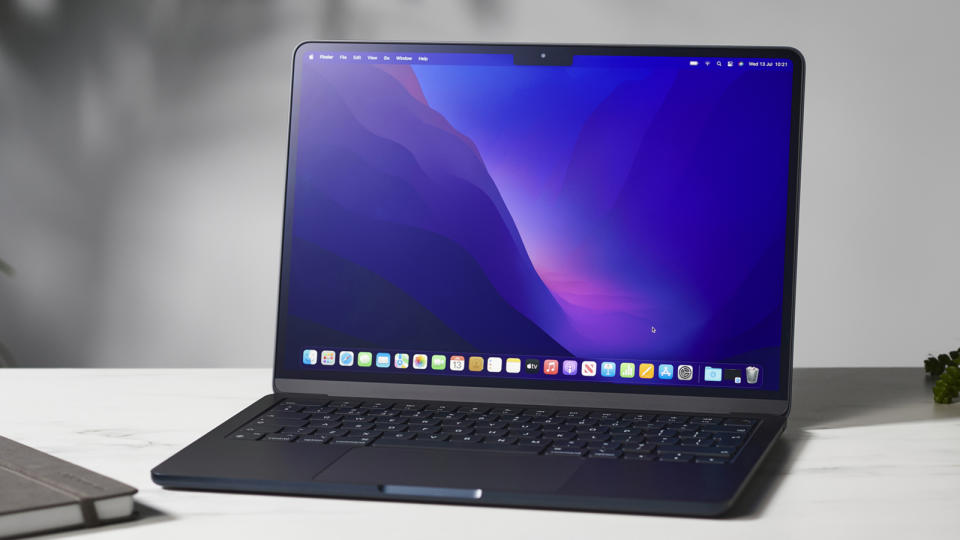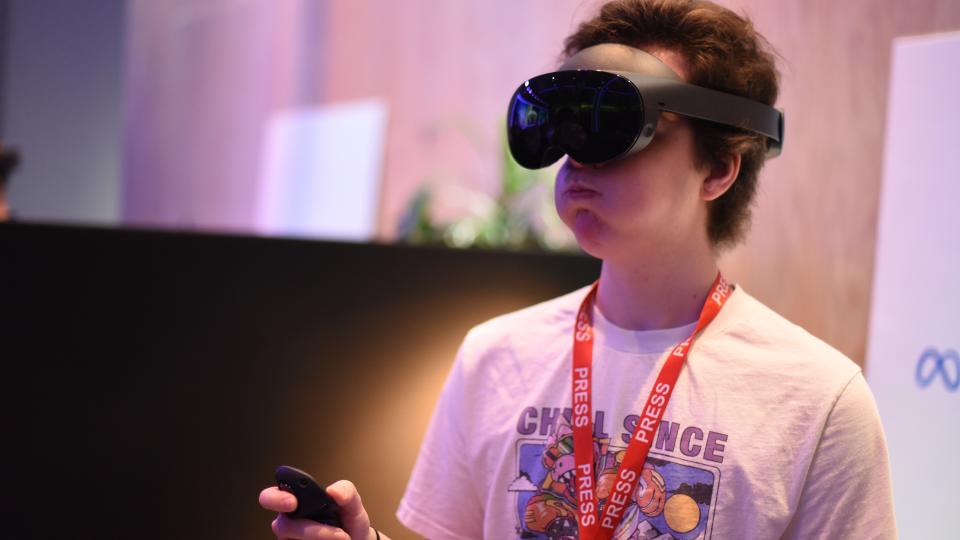I've lived with the Meta Quest Pro – and the Apple VR headset needs one thing to beat it

Apple’s annual developer event WWDC 2023 is fast approaching, and multiple signs are suggesting it’s when Apple will finally unveil its long-awaited VR headset – a gadget that has been stuck in development hell for years.
I’m excited about the launch of this new device – up to a point.
If the rumors are true it’ll be an uber-powerful headset – better than any of the best VR headsets that I’ve tested for TechRadar – with laptop-like performance thanks to an M2 chip, more cameras than the Meta Quest Pro, and a very lightweight design.
As great as this sounds, however, Apple can say goodbye to its dreams of dominating the VR space if it doesn’t stick the landing on one very important detail: software.

Phenomenal VR power…
Hardware is undoubtedly important, but headsets like the Meta Quest Pro and HTC Vive XR Elite are already too good for the software they have at their disposal. I almost never use the Quest Pro’s eye or face-tracking, because only Meta’s metaverse programs and its headset adjustment tool utilize them. Similarly, when testing the XR Elite I was blown away by the quality of its mixed-reality hardware, but there weren’t any engaging games or apps that took advantage of it.
Sure, the processing power of an M2 wouldn’t go amiss, but I’ve yet to play a VR game or boot up a VR app that ran poorly on either of these headsets, save for the occasional longish load times when booting one up.

So while I’m intrigued by the prospect of Apple’s headset boasting significantly better specs than its rivals, I’ve yet to be shown a reason why it needs hardware that’s rumored to set you back $3,000 (roughly £2,200 / AU$4,400). A killer suite of software would be that reason.
… Itty bitty software suite?
Thankfully, Apple seems to be setting itself up for software success. Alongside the tech media, Apple invites a swathe of developers to WWDC 2023, its annual developer conference, to show them the technical prowess of its hardware, and the updates coming in the next versions of its operating systems. This in turn can serve as inspiration for the projects those devs are aiming to launch on Apple’s App Store for iPhone, iPad, and Mac.
Likewise, if developers can get hands-on time with the new VR headset at WWDC 2023, Apple will hope they go away inspired to create new software for it – or at least engineer VR/AR-compatible versions of their existing programs to port over. If the Apple VR headset uses an M2 chip as is rumored its processing power would probably entice a number of developers who may have been put off by the relatively low performance of other standalone headsets. Apple collaborators could create new software that the Meta Quest Pro could only dream of running.
If this is the case, Apple’s VR headset could in time amass a library of games and apps that’s not only on par with what Meta’s Quest lineup offers but maybe even surpasses it in the productivity and gaming space.

It’s not a guaranteed win, however. Software development takes time, especially if you’re creating a product from scratch for a medium that’s entirely new to you. However inspired developers might be at WWDC 2023, they may not have anything ready until WWDC 2024, or even later. If Apple wants its headset to be a success out the gate it needs a solid suite of software ready to go right away – no one wants to spend $3,000 on a gadget that might get good in a year or two.
And while Meta’s mixed reality library leaves something to be desired, its VR lineup is incredibly strong – significantly better than that off its rivals Pico and HTC in terms of standalone VR headset content. It’s missing the odd great PC VR game – such as Half-Life: Alyx and Asgard’s Wrath – but otherwise, if you have a VR itch the Quest Pro and Quest 2 can almost certainly scratch it. Yes, its productivity-focused apps are a little lacking right now, but Meta has announced a collaboration with Microsoft to bring the latter’s suite of Office apps (Word, Powerpoint, Excel, and so on) to the Quest platform – so we don’t expect that’ll be an area of weakness for much longer.
If Apple wants its VR headset to stand out it’ll need to show the millions of people who are already invested in the Quest platform – and the much larger group of people who aren’t yet convinced by the tech – that its hardware can offer something no one else has offered before. From a technical perspective, the rumors suggest Apple’s headset should have things covered, but if it can’t outcompete Meta’s wide range of software – either with its own similarly large selection of games and apps, or a smaller lineup of unique must-have experiences – then it might struggle to steal Meta’s crown.

